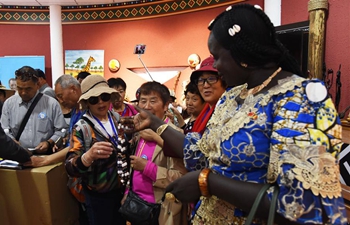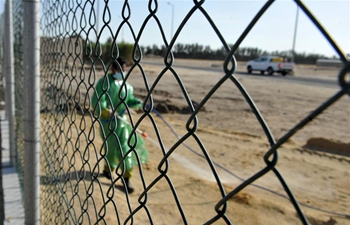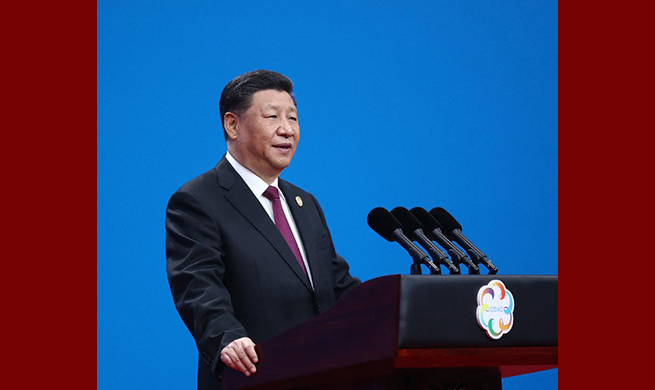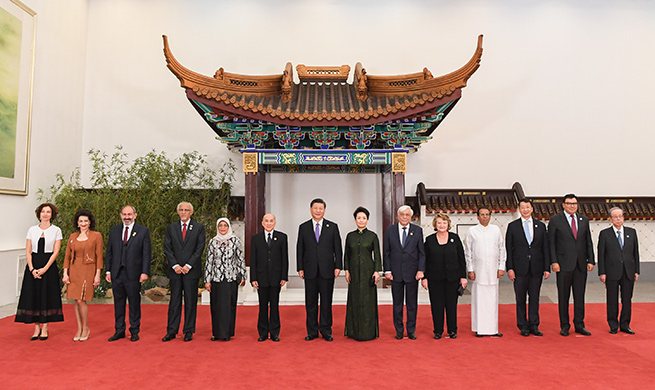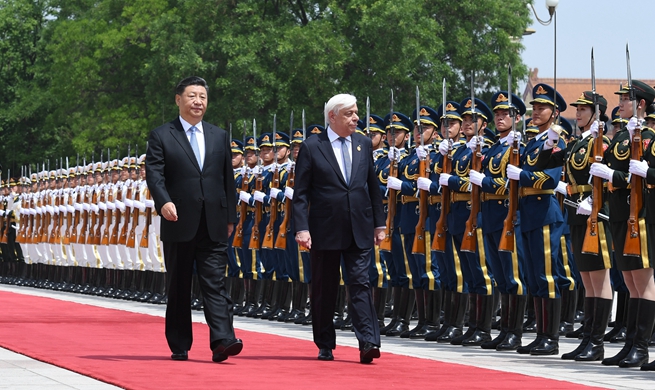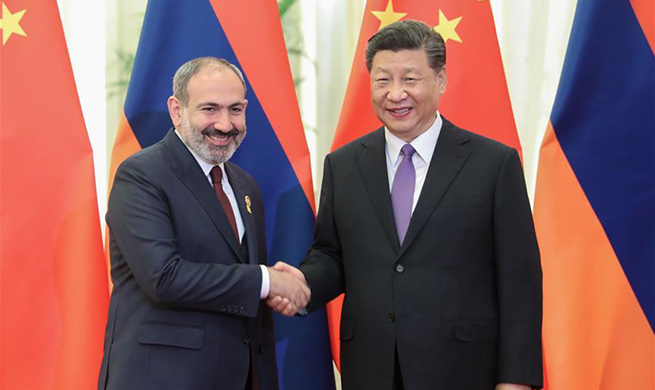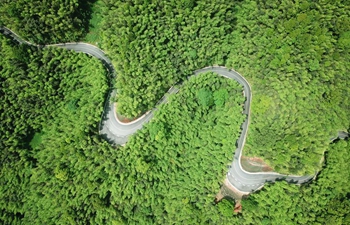by Matt Goss
CANBERRA, May 15 (Xinhua) -- With the federal election set to take place on Saturday, Australia is facing a choice between the promised economic stability of the incumbent Liberal-National party coalition (LNP) and the Labor opposition's ambitious policy agenda.
Prime Minister Scott Morrison, leader of the LNP, has built his re-election campaign on a message of economic stability, promising fiscal responsibility that will deliver the first budget surplus in a decade and make way for tax cuts across the board.
Australian Labor Party (ALP) leader Bill Shorten has, by contrast, made election pledges worth 60 billion Australian dollars (41.5 billion U.S. dollars) that he plans to fund by taxing the wealthy, especially the well-off retired.
Ross Gittins, a leading Fairfax Media columnist, wrote on Wednesday that at the heart of this election is a return to class warfare that has been "more in your face in this campaign than at any time" since the late 1960s.
He said that Shorten and his shadow Treasurer Chris Bowen planned to engineer the biggest redistribution of income from the rich to middle-income earners that "we've seen in ages."
By contrast, he claimed the LNP was "fighting tooth and nail" to protect the tax breaks favoring property investors, self-funded retirees and business people who have used family trusts to minimize their tax.
Gittins' analysis is similar to that of John Howard, the former LNP leader who served as prime minister between 1996 and 2007. Howard in April accused Shorten of fostering "envy and division" through "economic madness," according to The Australian.
Under the tax plan proposed by Morrison and Treasurer Josh Frydenberg, every middle- and high-income earning Australian would be subject to the same tax rate - 30 percent - by financial year 2024-25.
According to projections, the plan would cost the Australian budget 300 billion Australian dollars (208.1 billion U.S. dollars) by 2030 but will not prevent the LNP from delivering a budget surplus of 7.1 billion Australian dollars (4.92 billion U.S. dollars) in 2019-20 - Australia's first surplus in 12 years.
Shorten, on the other hand, has promised to close tax loopholes to deliver tax cuts for low-income earners while also increasing government spending on healthcare and infrastructure and delivering a bigger surplus than the LNP.
A Labor government will spend 2.3 billion Australian dollars (1.59 billion U.S. dollars) reducing the out-of-pocket costs for cancer patients by subsidizing cancer scans, specialist appointments and medicines via the Pharmaceutical Benefits Scheme (PBS).
Shorten has also committed to reducing Australia's emissions by 45 percent from 2005 levels and having 50 percent of the nation's energy come from renewable sources by 2030.
Climate policy is a significant point of difference between the two major parties, with the LNP failing to announce an alternative plan beyond Australia's existing international emissions reduction targets.
Kate Dooley, a climate and energy expert from the University of Melbourne, wrote for university publication Pursuit on Monday that "a returned LNP government ... would continue Australia's dismal track record of climate inaction with devastating consequences."
Despite the ambitious nature of Labor's policies, costings released by Bowen in May project that the party will deliver a surplus of 21.7 billion Australian dollars (15 billion U.S. dollars) by 2022-23.
According to the latest Newspoll, one of the nation's leading opinion polls, released on Sunday night, Labor leads the LNP 51-49 on two-party preferred terms; a margin that, if replicated in the election, would result in the ALP taking power.
The LNP has been slowly making up ground on the ALP in opinion polls, coming back from a 56-44 deficit when Malcolm Turnbull was deposed as prime minister and Morrison installed as his successor in August 2018.
However, the infighting and leadership speculation that plagued the party under the leadership of Turnbull and Tony Abbott before him will likely prove fatal on Saturday.
Morrison is the sixth person to serve as Australia's prime minister since 2007 and the third since the LNP won power in 2013.
Meanwhile, the ALP has maintained stable leadership during its six years in opposition.
Shorten was elected the ALP's leader after it lost the 2013 election and has held the position ever since, even enduring the 2016 defeat, and has been supported by the same leadership team of the party.
Because of losses in by-elections, the LNP enters the election holding about 74 out of 151 seats in the lower house of the parliament, or the House of Representatives, two fewer than required to form a majority government.
In order to cause an upset and win a third term in government on Saturday, the LNP must save face in Victoria and Queensland, the two states considered important in the election.



